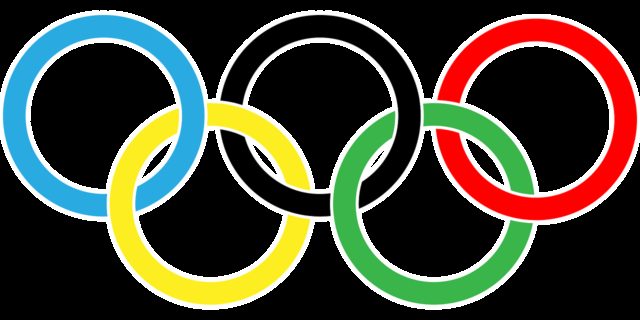In my previous posts about the Olympics, both summer and winter, I have focused quite a lot on the challenges athletes face as they strive to live the Olympic motto, set goals and work toward them, and achieve success, whether that involves winning a medal, having a career-best performance, or making it to the Olympic competition itself. Many of these challenges have been COVID-related, since the pandemic has impacted so much of the athletes’ preparation for and participation in the Olympics, just as it has impacted so much of your life experience, both in and out of school, over these past two years. In addition to giving you examples of how you can apply the Olympic motto, “faster, higher, stronger” to the development of your study skills, I have also stressed that the resilience the athletes have shown through these pandemic times, as well through whatever other challenges they have faced in their careers, is perhaps their most important quality, because it allows them to persevere through their challenges. In this post, I will continue to focus on the resilience of the athletes, as well as your own, by shifting my attention from the challenges athletes face before and during their competitions to how they handle the results, not just of victory, but also, and much more importantly, of defeat. I have posted before about the importance of learning from failure as well as from success, but it certainly bears repeating, since no one, not even the greatest of Olympians, is successful every time they compete, let alone in every other aspect of their lives.
Now that the Olympics have ended, there are countless stories of resilience I can draw from, and relate to your lives as well. Everything from not giving up in the longest of races through the harshest of conditions, to losing in one event only to come back and win in the next, to coming out of COVID isolation to win despite the disruptions to training it caused, can be examples to you of how you can be resilient and make comebacks regardless of any failures or setbacks you might face. Sticking it out through the many steps of a long-term project, failing a test in a challenging class only to come back and pass the next one, and fighting through whatever ways COVID has impacted your life to see success despite disruptions, are only a few of the many ways you have either already shown yourself to be as resilient as the athletes or can do so in the future. If you think of your studies the way they do of their sports, you can build resilience over time, just as they already have and will continue to do. If you play sports, or participate in another activity, such as music or drama, that requires a similar commitment to building skills, performing them for an audience, and facing possible struggles and setbacks, you are building resilience that you can apply to your studies, and vice versa. Developing study skills is very similar to developing athletic and/or performance skills, because they all require you to make a commitment to doing better than you thought you could by accepting coaching and other assistance, but they are also similar in that nothing is guaranteed. What the most gracious and excited medal winners and the most gracious and disappointed medal losers have in common is gratitude and appreciation for the moment, whatever the outcome. Even though most of your moments will never approach the grandness of the Olympic stage, appreciating where you are and what you have put into each moment, no matter the outcome, will help you build the resilience you will need to face whatever lies ahead.
Another important way in which athletes showed resilience at this Olympics that you can apply to the development of your study skills is how they came back from failures at past Olympics to win this time around. Four years is a long time to wait for a moment of redemption, and you will most likely not need to wait that long to see the results you want to see with your studies, but seeing moments like that happen is a good reminder that part of being resilient is being willing to continue on the road to success even when it seems as if you will never get there. If you struggle at the beginning of a new school year, or in a certain grading period, or from one year to the next, it might be tempting to believe that success won’t come, or won’t return again if you have experienced it before, but if you remember what I have said about the development of your study skills being a journey, you will be better able to fight through your struggles, so that later in the school year, or at the beginning of a new grading period or a new year, you will see greater success. When Olympic athletes talk about their journey to the Games, they often make a point of reflecting on the full four years between Olympics, and sometimes even longer. While they are trying to remind us of how much time and effort they put into preparing for the Olympics, since many viewers only watch them once every four years and therefore might not realize what preparing for the Olympics actually entails, they are also giving us good examples of their resilience. As they reflect on what their Olympic moment means to them, they are also reminding us that hard work pays off.
Another way in which the most gracious athletes, win or lose, showed their resilience was through their genuine respect for their fellow competitors. The cross-country skier who won his race, then waited for the very last competitor to cross the finish line, the snowboarders who celebrated in a group hug the three medalists in their midst, and the athletes who showed up to watch their friends and fellow competitors no matter the outcome of their own events all displayed good sportsmanship. Though it was most likely easier for those who won events than it was for those who lost, showing good sportsmanship was a sign a resilience in all who displayed it precisely because it was not universally practiced. I will not list examples of poor sportsmanship, which, though present, were thankfully less prevalent than the examples of good sportsmanship I witnessed, but it is important to note that they did occur, because it is a good reminder of what not to do, not only in sports, but in school and in life. The lessons of both good and poor sportsmanship by the Olympians can apply to your life in many ways. At first glance, it might be hard to see how they apply to your studies, and supporting your classmates when you are struggling might seem to be a nearly impossible ask, but the more able you are to support them, the more they will support you in return. Showing genuine happiness for someone else’s success, regardless of your own outcome, is far from easy, but it is far better than the alternative, and I’m sure that the athletes who supported their fellow competitors went home feeling much more satisfied with their overall Olympic experience, no matter how they felt about their own performance, than those who remained fixated on their own disappointments. As I have said many times before, focusing on your own study skills journey is more important than comparing yourself to others, and accepting your own outcomes, no matter what they are, will leave you both resilient enough and open enough to show genuine respect for what those around you have achieved.
No matter what they did or did not achieve during the Olympics, athletes showed their resilience in many ways. Persevering through challenging events and COVID restrictions, redeeming themselves after past disappointments, and displaying good sportsmanship, win or lose, are all examples of how the athletes made the most of their Olympic experience. No matter the challenges you face, both in and out of school, striving to persevere and becoming more resilient in the process can go a long way toward increasing your chances of success.

